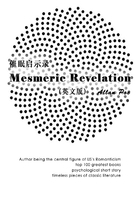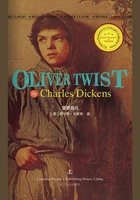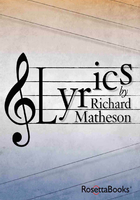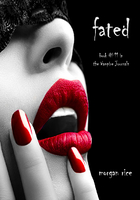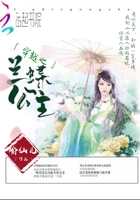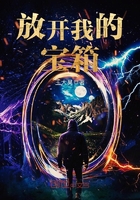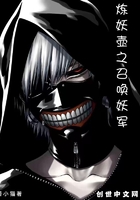The success of En attendant Godot (Waiting for Godot) in Paris in January 1953 brought Samuel Beckett significant opportunities to write for radio, television and film. Nearly half of his shorter plays were written for these media and gathering them into a single volume acknowledges their notable place in his oeuvre. Beckett was to make major innovations in his works for radio and screen by declining to take for granted prevailing conventions or pre-conceptions concerning them, or to capitulate to popular appeal when writing for mass media. This left him free to explore their specific characteristics, such as the absence of visuals in radio, the presence of the camera in film, or the voyeuristic qualities of the television screen. Moreover, these works not only enter into dialogue with the media for which they were written, but with each other, and with Beckett's stage plays and fiction.
Radio
There had been prologues to Beckett's radio plays. In the immediate aftermath of the Second World War, he had volunteered for service in the Irish Red Cross hospital built in the heavily bombed Normandy town of Saint-L?, and in 1946 submitted an account of his experiences entitled 'The Capital of the Ruins' to Radio Telefis éireann (although it was not aired). A condensed version of En attendant Godot was broadcast on French radio on 17 February 1952 as part of the efforts of Roget Blin, its first producer and director, to get the play staged. Beckett's long and mutually rewarding connection with the BBC did not begin with drama, but with the reading of an excerpt from his novel Watt (1953) on the Third Programme on 7 September 1955.
In the late 1940s and throughout the 1950s radio drama was enjoying a post-war renaissance. The BBC sought out promising younger artists, commissioned radio adaptations of plays written for theatrical performance, and, above all, encouraged writing plays specifically for the radio medium. After Dylan Thomas's Under Milkwood (broadcast on 25 January 1954), the BBC was looking for a success, while the more entrepreneurial radio producers were also looking for an opportunity to embrace the avant garde. Beckett satisfied both criteria. In 1955 the BBC seriously considered a radio production of En attendant Godot (and commissioned the author to translate it into Waiting for Godot), but decided that the problems of making so visual a work intelligible in an aural medium were formidable, and encouraged Beckett to write a play specifically for radio instead. (Their prudence was warranted: when the BBC later broadcast a radio adaptation of Waiting for Godot (27 April 1960), it satisfied neither author nor director.)
Though initially cautious about writing for the new medium, Beckett warmed to the prospect, remarking in a letter to Nancy Cunard (4 July 1956): 'Am told [BBC Controller Val] Gielgud wants a play for 3rd programme. Never thought about radio play technique but in the dead of t'other night got a nice gruesome idea full of cartwheels and dragging of feet and puffing and panting which may or may not lead to something.'[1] What it led to, in addition to much-needed income, was All That Fall, broadcast on 13 January 1957, and the beginnings of a life-long collaboration with the BBC.
In some respects All That Fall seems conventional enough. We encounter Maddy Rooney – in her seventies, overweight and unwell – laboriously making her way to and then from the Boghill railroad station (the only named location in any Beckett play), whose many features are drawn from the Foxrock of Beckett's youth. The circumstantiality of detail and the particularity of stock characters suggest that Beckett was conjuring for radio an Irish village much as Dylan Thomas had conjured a Welsh one. But it is a very Beckettian conjuring, and anticipates his later exploration of the power of radio to locate the drama inside the head of the protagonist, evincing mental processes more directly than any other dramatic medium is able to do. Verbalising such interiorities is, perhaps, among the most compelling and perennial concerns of Beckett's work. In All That Fall we hear the world from inside the mind of Maddy Rooney, not as if we were 'there', but as it might be experienced by a woman 'in a state of abortive explosiveness', as Beckett once described Maddy to Billie Whitelaw.
After the success of All That Fall the BBC was eager for a sequel, but it was two years before Beckett provided one in the form of Embers, completed in February 1959. In the interim, the BBC broadcast an early version of From an Abandoned Work (spoken by Patrick Magee, 14 December 1957), billed by the Third Programme as 'A meditation by Samuel Beckett'. And, while this prose work was finding a home on radio, a tape recorder – such as the one on which Beckett had listened to a playback of All That Fall – was being incorporated into Krapp's Last Tape, the stage play that originated as a 'Magee Monologue' in part because Beckett had been so struck with Magee's radio voice.
Although he had serious reservations about Embers, Beckett confided to his American publisher Barney Rosset that it represented an 'attempt to write for the radio medium, rather than simply exploit the medium's technical possibilities'.[2] It explores ambiguities that exist only on radio. Thus Ada makes 'no sound as she sits', unlike Henry who does. Beckett once observed to Ludovic Janvier that 'Embers depends upon an ambiguity: does the protagonist have a hallucination or is he in the presence of reality? A visual production would destroy the ambiguity.'[3] Such 'teasers' pervade the later theatrical and media works.
Beckett's next contribution to radio was not an original work but an adaptation of one by Robert Pinget, whom he had met through his French publisher, Jér?me Lindon, and whom he came to regard as among the most promising young writers in Paris. The two collaborated in 1957 and 1959 on the French translations of All That Fall and Embers. Pinget's own radio play, La Manivelle (the crank or handle of a hand organ), was broadcast by the BBC in French on 27 July 1959, after which the BBC commissioned Beckett to translate it for broadcast in English. The Old Tune, Beckett's 'adaptation', translates Pinget's Parisians (Toupin and Pommard) into Dubliners (Cream and Gorman), and turns their colloquial Parisian French into a colourful Dublin argot that retrospectively inserts the play into a tradition of Irish theatre reminiscent of O'Casey or Synge. 'I tried to keep down Irishism but it kept breaking through. Couldn't get his rhythms and loose syntax any other way,' Beckett wrote to Barbara Bray, who directed the BBC production.[4] The famous translator and pungent dialogue have subsequently overtaken Pinget's original, and The Old Tune has been included in Beckett's Collected Dramatic Works since 1984. But when S. E. Gontarski revived it in 1986, Beckett admonished him to 'be sure Pinget gets full & visible credit. The Old Tune his vision not mine.'[5] And yet it resonates with other Beckett dramas, notably Rough for Theatre I with its two old men (which Beckett may have begun drafting as early as the mid-1950s), and with Waiting for Godot, where Didi and Gogo are similarly able to wind each other up with a mixture of reminiscence, bravado and bull. The Old Tune appears as an appendix in this volume – on the one hand neither fully Beckett in quite the same way as are the other works included; but on the other, not possible in this form from any other hand.
Two further radio plays were sketched out in French in the early 1960s but unpublished until the 1970s. Beckett considered Rough for Radio I (Esquisse radiophonique) to be a discarded attempt at what became Cascando, and he discouraged its production, describing it to Everett Frost in 1985 as 'unfinished and now unfinishable'. In 1976 he complied with urgings from the BBC for a new piece that could be included in a programme celebrating his seventieth birthday, by reaching into his proverbial trunk for Pochade radiophonique, a radio play dating from a somewhat speculative 'années 60?'[6] and translating it for the BBC as Rough for Radio (published here as Rough for Radio II – in order of composition, however, it probably precedes Rough for Radio I).
Beckett's last two radio plays (1961–2) were written – the first in English, the second in French – in collaboration with composers. His cousin, John Beckett, had provided continuity or 'travelling music' to accompany readings from the prose works, which led to a commission for author and composer to collaborate in creating what became Words and Music. Similarly, Beckett's friend, the composer Marcel Mihalovici, having previously collaborated with him in creating an opera from La Dernière bande (Krapp's Last Tape) had received a commission to write a work for French radio and asked Beckett to provide a text, resulting in Cascando. In both plays, Beckett relinquished his usual meticulous control, relying on the composer to create half of the drama and one of the major characters. And whenever the score varies, the play varies.
With Words and Music Beckett created a play so radiophonic that it can only be fully experienced aurally. Music is often used to personify (whether the villain in vaudeville, or Siegfried in Wagner) in order to build tension, supply moods, or create background. But prior to Beckett no radio drama had used the unseen medium's unique ability to represent music itself, or words themselves. For 'Bob' (the name given to music in Words and Music) is not merely the conductor, ensemble, and score that one experiences at a concert; he is also the process of creating the music that takes place in the mind of the composer, which can be conveyed but not portrayed. Similarly 'Joe', the name given to words, includes not only their utterance but also the mental act of shaping them. It is therefore impossible fully to stage the play other than on the radio because – as with Cascando, in which Opener 'invokes' a music character and a word character – the essence of the action depends upon its being non-visual.
Beckett described Words and Music to Grove Press as a 'text-music tandem', and remarked to Theodor Adorno that it parodied the age-old debate, as to whether one gets closer to the truth through words or music – and in which music finally prevails.[7] It is a debate that Beckett encountered as a young man in the philosophy of Arthur Schopenhauer, for whom music, not being language-dependent, is more universal and speaks directly to the emotions, thus at least momentarily releasing auditors from the endless strivings of the will. When words accompany music, 'they must of course occupy only an entirely subordinate position, and adapt themselves completely to it'.[8] In Words and Music, 'Music always wins,' as Beckett told Katherine Worth.[9]
Film
By the early 1960s Beckett had ceased to write radio plays (although BBC radio continued to produce readings from his poetry and prose, and adaptations of his stage plays), but he had become interested in television as a medium for the exploration of consciousness and perception, and had begun thinking of a teleplay that would feature Jack MacGowran. In the event he was temporarily diverted to Film by Barney Rosset's offer in February 1963 to fund and produce a thirty-minute film if Beckett would write an original screenplay. Rosset's offer would have been tempting to Beckett, who as a young man had read film journals and criticism, and developed an informed interest in the technical aspects of film-making. Seeking a suitable vocation, he had written in 1936 to the Russian film-maker Sergei Eisenstein enquiring after the prospect of studying cinematography with him for a year, but in the turbulence of the 1930s never received an answer. Beckett's only screenplay written for theatrical release, Film, brought him to the United States for the first and only time in July–August 1964, so that he could actively participate in its filming. Under the pressure of other commitments MacGowran withdrew at the last moment, and Buster Keaton was induced to take the role.
As described by the director, Alan Schneider, 'the script appeared in the spring of 1963 as a fairly baffling when not downright inscrutable six-page outline. Along with pages of addenda in Sam's inimitable informal style: explanatory notes, a philosophical supplement, modest production suggestions, a series of hand-drawn diagrams.[10] In Film as elsewhere, Beckett occasionally uses philosophical premises as imaginative starting points for structuring a work, without being particularly concerned about the usefulness of such ideas in explaining the world or the work. Film imagines an attempt to embrace non-existence according to the epistemology of the Irish philosopher George Berkeley (1685–1753), whose premise was that 'esse est percipi' – that to be (i.e. to exist) is to be perceived. Without such perception, one's existence is erased. In Berkeley's philosophy we are assured of our continued and continuous existence because we are perceived in the mind of God. In Beckett's film the 'O' – a figure who is held in existence as an Objectified perception – seeks to erase himself by eluding perception.[11] While waiting its chance, 'E', the scrutinising Eye of the camera, occasionally tests or inadvertently crosses the 'angle of immunity' (45o), the angle at which one can no longer see oneself reflected in a mirror; hence – in any film shoot – an angle not to be transgressed by the camera in the presence of reflective surfaces, lest it film its own reflected image. So long as 'E' respects this angle, self-perception is kept at bay. The difficulty is that he cannot continue to exist and escape awareness of his own existence. These – the perceived and perceiving selves, 'one striving to see one striving not to be seen', as Beckett remarked[12] – are mirror images of each other and, indeed, at the climactic moment the audience discovers that like the camera, 'E', 'O' has but one eye, wearing a patch over the other.
In Film Beckett made full use of the camera as a character in its own right, similar to his use of light in Play, written the previous year. Thus the camera is not an anonymous and impersonal mechanism for the audience to observe a scene, but a lurking doppelg?nger playing a role, with a will of its own, stalking its prey. As the probing eye of the audience it makes us voyeurs, complicitous in its agenda, and confronts the self with the intolerable (because ineradicable) fact of self-consciousness.
Television
After Film, Beckett returned to the thought of writing a television play for Jack MacGowran. In April–May 1965 he drafted Eh Joe (the name of the protagonist changing from 'Jack' to 'Joe' in first draft), submitting it unsolicited to the BBC's head of plays (and director of Words and Music), Michael Bakewell. Subsequently directing the German production himself, Beckett began his lifelong and productive relationship with Süddeutscher Rundfunk (SDR) in Stuttgart, with Dr Reinhard Müller-Freinfels, its Head of Television Drama, and with Jim Lewis, the American cameraman who would become indispensable in helping Beckett achieve the desired camera and lighting effects.
As with the stage plays Footfalls, Rockaby and That Time, and the teleplay Ghost Trio, Eh Joe makes use of schizophonia, separating image from sound source: we see a character but hear a voice unsynchronised with the moving lips. In Ghost Trio the precise nature of the relationship between the two is left even more enigmatic than it had been with Eh Joe. The use of a sound track in asynchronous counterpoint, so as to scrutinise mental processes, was explored by Eisenstein as part of his theory of film montage (which depended upon 'the pronounced non-coincidence of sound with visual images') – Beckett was well aware of Eisenstein's description in Film Form of '"inner monologue" as a literary method of abolishing the distinction between subject and object'. In montage, moreover, 'the narrative, meaning, and impact of a film is conveyed through the cutting and juxtaposition of disparate shots', so that the film as such resides not in its several elements, but in the reassembling of them in the mind of the viewer. This theory 'applied equally to the introduction of both sound and colour in film production'.
Before the advent of digital high-definition, television's shadowy images tended to flatten out depth and lacked the sharpness and clarity needed for expansive shots or landscapes. Television was more adapted to close-ups, equipped for scrutinising the individual face with what Beckett called its 'savage eye'.[13] The small screen, unlike the big one, is watched from close up, in the privacy of one's home, rather than from a distance, in darkness, in an experience shared with others: 'It's a peek through a keyhole,' Beckett remarked after watching a playback of Eh Joe.[14]
Following cinematic convention, when the camera works from the side or behind it is a witness to the action, making the audience privy, as at the beginning of Eh Joe. When it fixes on the face and moves relentlessly in, it is an interrogation – which, as Beckett noted, is the visual component of the voice in the head[15] – penetrating the workings of the mind, with the audience's passive compliance. In Eh Joe and again in Ghost Trio Beckett stretches this tradition by making the voice female, though there is no reason why the internalised voice need be of the same gender as that of the auditor. Like the Henry of Embers, who has killed off the voice of his father and may be wearing his wife's down to extinction, Joe has killed the voices of his mother and father, and is trying to silence the accuser afflicting his solitude. But he cannot. As Beckett told an interviewer while directing the play: 'Only if she lives can he satisfy the wish to kill her. She is dead, but in him she lives. That is his passion: to kill the voices he cannot kill.'[16]
Beckett had used New York as an opportunity to learn more about film-making, but it was a medium in which neither writer nor director had previous practical experience, and the producer but little. In the autumn of 1966, after initial reservations, he agreed to collaborate on the filming of Comédie (Play) by Marin Karmitz, an experienced cineaste with an aesthetic sensibility consonant with Beckett's own. Thus the stage play which had contributed conceptually to the scenario of Film became a film in its turn, and in the process became an invaluable source for techniques and imagery that would emerge – and re-emerge – in Beckett's subsequent stage and teleplays.
Television was well-suited to Beckett's movement away from realism and towards minimalism or formalism – towards the disembodiment, disjuncture and interiorising of the narrative process that is evident in his later work. It afforded him new opportunities to portray the fragile and ephemeral nature of the individual human life, the nature of consciousness, and to explore mind-body questions which he had absorbed from his extensive readings in philosophy, psychology, and linguistics. In the early 1960s most television was still in 'black and white', which in fact meant shades of grey, and the fluorescent screen made figures seem disembodied and interiors ghostly. In Ghost Trio, Beckett consciously exploits this aspect – 'All grey. Shades of grey' – of the little screen, and he changed F's costume from a dark suit to a grey dressing gown – making him a phantom analogy to the grey room in which he is immersed.
Stage plays, variously directed and re-directed, are inevitably subject to change. But the television plays included the possibility that in their first productions, at least, they could be honed and re-recorded under Beckett's own direction or supervision until they reflected his intentions. So that the teleplays, whether inadvertently or by design, preserve the most concrete evidence we have of how Beckett himself wanted things done, and implicitly provide invaluable dramaturgic guidance for subsequent productions or film adaptations of his stage plays. In general the German productions would seem to be closer to Beckett's intentions because he was able to direct these himself, and because they were usually created immediately subsequent to his active participation in the BBC productions, allowing him to incorporate into the latter what he had learned from the former. Additionally, SDR provided more generous rehearsal time and technical support than could be afforded by the BBC.
Ghost Trio,…but the clouds…, Nacht und Tr?ume, and Quad were each written as media-specific teleplays, the first three of which contain intensely personal experiences of remembered music or poetry; while the fourth integrates original music with image and movement, much as his final two radio plays had done with words and music. All four use the fluorescence of the small screen to create a kind of spectral poetry composed of image, lighting, movement, music and text, and (with the exception of Quadrat 1) textures of grey. The first three extend what Beckett in 1968 had already adumbrated to Jack MacGowran as 'the old idea of a man waiting in a room seen first at normal remove then investigated in detail'[17] – familiar from Eh Joe, but having its roots in Beckett's fiction from Murphy onwards.
In Ghost Trio the music is wordless and we are closer to the Schopenhauerian realm of raw emotion. It is left unclear as to whether the music emanates from the mind of F or from the cassette-player at hand (or a combination of both). The teleplay kept its first title, 'Tryst', until a late stage of development before acquiring the title that links it more overtly with Beethoven's fifth piano trio, excerpts from which are audible at key moments. The original title may also have been abandoned in order not to encourage the cliché that F is eagerly hoping for the awaited encounter. Like M in…but the clouds… he may well be; but it is also possible that he is dreading it, like Joe in Eh Joe. When F looks up and smiles at the end of the play, there is no way of knowing whether he is consoled by the music (for the non-appearance of an awaited visitor) or is now free to lose himself in it without fear of further distraction. The final musical excerpt is from the second, more vigorous and emotionally triumphant theme of the Beethoven largo – the only time this theme appears in the play. The text as such of Ghost Trio is minimal. The set required is imparted in a diagram, which is elaborated upon in the script for Voice ('V') in the first part ('Pre-action') and in the second part ('Action'), where it is not clear whether or not 'F' hears 'V' and (almost always) moves according to the instructions given, or whether 'F' is describing the action. 'V' does not seem to be in control, since 'F' can move independently of her instruction or description.
Beckett wrote…but the clouds… for the BBC to accompany Ghost Trio and the filmed version of Not I on the programme produced to celebrate his seventieth birthday. The familiar solitary man ('M') in his 'little sanctum' now narrates his own, first-person, description (voice-over) of his actions and motivations as they are enacted by him ('M1') on a set in which there are no camera movements. The dramatic climax is achieved in a subversion of the convention of synchronised sound: the voice uttering the words of the poem is not that of the woman's image mouthing them (as one might expect in a sound film), but of the narrator telling the story he performs. In a deliberate inversion of the asynchronisation of voice and image found in Eh Joe and Ghost Trio, the beggar and the vision for which he has begged are fused in an epiphany. 'Poetry only love' had been the play's working title (condensed from 'Poetry was her only love'); the final title,…but the clouds…, derives from the concluding lines of Yeats's 'The Tower', in which the speaker wonders: 'Does the imagination dwell the most / Upon a woman won or a woman lost?' – a frequent theme in Beckett, and a testament to his regard for Yeats's poetry.
Directing his own work became for Beckett a continuation of the writing process, and the script a hypothesis tested in rehearsal, where considerable modifications of the original concept would occur. Thus Beckett's highly valued cameraman at SDR recalled (in 1987) that the camera moves in the German production of Eh Joe were more flexible than those so precisely specified in the published script: 'I simply cannot remember us spending much time with centimetres and metres, etc…. the voice dictated the starting and stopping of the camera, perhaps we felt that rigid adherence to strict measurement wasn't necessary – it wouldn't be the first time that Sam abandoned his usually very exacting instructions.'[18] Similarly in Ghost Trio and…but the clouds…, the durations specified for the shots are more fluid (and differ from each other) in the English and German productions than the precise timings indicated in the published texts.
Quad, a 'ballet for four people', was written for Süddeutscher Rundfunk and televised in 1981 as 'Quadrat 1 + 2', and directed by Beckett. It is performed by four hooded mimes, preferably 'as alike in build as possible', their arms tightly crossed as if 'they were resisting a cold wind'.[19] Each is identified with a colour and a percussion instrument. Each mime twice walks an identically prescribed geometric course, alternating one side of the square with a diagonal until all four sides have been traversed, returning to the corner from which she or he started. They enter and exit sequentially at prescribed intervals and each from a sequentially prescribed different corner, such that all four corners are represented and the number of players on stage twice increases from one to four and then decreases from four to one. The invisible centre of the square ('E') emerges as the most palpable presence haunting the drama: 'a supposed danger zone', according to one of Beckett's typescripts.[20] When two of the four players approach the centre at the same time they avoid collision by an abrupt leftward movement. But since this movement is also made by the first solo player when there is no collision to avoid, there is no indication that the players are aware of each other.[21]
A sequel to the original scenario emerged from the discovery that Beckett had overestimated the time required to perform it, and that the performance looked good even on the black and white studio monitors. Beckett – all of whose other teleplays specify black and white – was delighted, remarking that it is 100,000 years later, and added Quadrat 2, in which the 'feverish monotony' of the first part is replaced by the players re-traversing their courses one more time at a slower speed, in black and white, and without musical accompaniment other than the emphatic sound of their wearily shuffling footfalls. What seems in the beginning to be a whimsical piece of choreography becomes increasingly disconcerting – the kind of unrelieved repetition suggested by Dante's Inferno (which Beckett knew intimately).
The teleplay seems simple, but it is in fact very difficult to perform. Each Quadrat must be filmed in a single take since it cannot be edited: a mis-step by any of the performers or a glitch in the music requires that the entire piece be recorded again from the beginning. At times there are four percussion beats occurring simultaneously – one in synchronisation with each performer. In the Stuttgart production the performers wore headphones concealed under their hoods in order to keep time to their own beat.[22]
Finally, Nacht und Tr?ume (Night and Dreams), like Quad and like Act Without Words I and II, is a play without spoken words – a telemime. Its title comes from a Schubert Lied (D 827), and Beckett specified: 'text of song of course in German and to be left so in eventual translations', along with the German title to the English text.[23] Nowhere is the presence of a serene romanticism in this supposed pessimistic ironist more palpable than in this gentle last teleplay, in which 'the helping hand' so longed for by Maddy Rooney in Beckett's first play for radio finally appears, gender uncertain: 'one of our numerous teasers', as Beckett is reported to have said.[24]
Adaphatr?ce
As Beckett achieved celebrity he was besieged with requests for permission to adapt works from one medium to another. Since genre-specificity was intrinsic to the act of writing (and of collaborating on or directing a production), he came increasingly to resist such 'adaphatr?ce', as he once punned it, often regretting instances in which he had relented and given permission. The issue was not primarily about whether or not one might achieve an aesthetically satisfactory result by adapting the work for another medium, but rather of not obliterating its media-specific intentionalities or contextualising 'teasers' that had been left disturbingly uncontextualised – for example, by moving elusively abstract works in the direction of a plausible realism and intelligibility. His polemical letter to Barney Rosset is often cited, amid all the complications of permission and refusal, as a defining statement of Beckett's views on such matters (quoted, for example, as the frontispiece to Clas Zilliacus's Beckett and Broadcasting), and it bears reprinting in an edition such as this:
All That Fall is a specifically radio play, or rather radio text, for voices, not bodies. I have already refused to have it 'staged' and cannot think of it in such terms. A perfectly straight reading before an audience seems to me just barely legitimate, though even on this score I have my doubts. But I am absolutely opposed to any form of adaptation with a view to its conversion into 'theatre.' It is no more theatre than End-Game is radio and to 'act' it is to kill it. Even the reduced visual dimension it will receive from the simplest and most static of readings […] will be destructive of whatever quality it may have and which depends on the whole thing's coming out of the dark. […] frankly the thought of All That Fall on a stage, however discreetly, is intolerable to me. If another radio performance could be given in the States, it goes without saying that I'd be very pleased.
Now for my sins I have to go on and say that I can't agree with the idea of Act Without Words as a film. It is not a film, not conceived in terms of cinema. If we can't keep our genres more or less distinct, or extricate them from the confusion that has them where they are, we might as well go home and lie down.
[from a letter to Barney Rosset, 27 August 1957]
Most attempts to cross the boundaries of what Beckett calls 'genre' have proved disappointing. He approved a film adaptation by Robert Pinget of Tous ceux qui tombent (All That Fall) for broadcast on French television (25 January 1963), then regretted having done so. Seeing a BBC broadcast of Waiting for Godot, he remarked: 'My play wasn't written for this box; it was written for small men locked in a big space, whereas they are too big for this place'.[25] Yet there are also instances in which a media adaptation of a stage-play gave it a newly 'Beckettian' life in the medium to which it had been transposed. The Marin Karmitz film of Comédie (Play) powerfully recreates the work as a film. Beckett himself wrote a three-page memorandum of 'Suggestions for a t.v. Krapp'. In the version with Patrick Magee, the intentness of the close-up on the small screen captures the poignancy with which Krapp is absorbed in rehearing the story of the girl in the punt, for example, and overcomes the distance between audience and performer imposed by the stage. The iconic film of Billie Whitelaw in Not I, with the Auditor eliminated and the screen filled with the twisting, writhing Mouth, gives the play such a compelling televisual existence that Beckett included it in his BBC and German seventieth birthday broadcasts Shades/Schatten. 'For once,' notes James Knowlson, 'a transfer to another medium had worked brilliantly in its own terms'.[26]
Sometimes the process has worked both ways: in adapting the stage-play What Where for television, Beckett created what is in effect his last teleplay, and solved problems that had dissatisfied him in the play's original medium. Subsequently the television script was itself (re)adapted for the stage, creating What Where II.[27] In execution and atmosphere according with the 'bodies & movement eliminated / faces only' specified in his 1985 project notebook,[28] the teleplay and revised stage-play more closely resemble the film of Comédie or…but the clouds… than their own stage original. It seems appropriate that Beckett's final performative gesture would be to so fuse theatre and media in the evolution of a single work that they can no longer be extricated from each other.
Notes
[1] Harry Ransom Research Center, University of Texas, Austin, MS 93.
[2] John Pilling, A Samuel Beckett Chronology (Palgrave/Macmillan 2006), p. 142.
[3] Ludovic Janvier, Pour Samuel Beckett (Paris: éditions de Minuit 1966), 127n19.
[4] Trinity College Dublin (TCD) MS 10948/58 n.d (November 1959). With the permission of The Board of Trinity College Dublin.
[5] C. J. Ackerley and S. E. Gontarski, The Faber Companion to Samuel Beckett (London: Faber 2006), p. 420.
[6] Clas Zilliacus, Beckett and Broadcasting: A Study of the Works of Samuel Beckett for and in Radio and Television (Abo: Abo Akademiae Aboensis, 52:2 1976), p. 9.
[7] Ibid. p. 114.
[8] Arthur Schopenhauer, The World as Will and Representation, Vol. II (New York: Dover 1966), p. 448.
[9] Katherine Worth, 'Words for Music, Perhaps', in Bryden, ed. Samuel Beckett and Music (Oxford: Clarendon 1998), p. 16.
[10] Alan Schneider, 'On Directing Film', in Samuel Beckett, 'Film': Complete Scenario, Illustrations, Production Shots (New York: Grove 1969), p. 63.
[11] A preliminary draft identifies the 'search of non-being in flight from extraneous perception culminating in inescapability of self perception' as 'the subject of the film' (University of Reading UofR MS 1227/7/6/1).
[12] S. E. Gontarski, The Intent of Undoing in Samuel Beckett's Texts (Bloomington: University of Indiana Press 1985), p. 112.
[13] Jim Lewis, 'Beckett et la caméra', Revue d'ésthétique (numéro hors-série), 1986, p. 371.
[14] Zilliacus, p. 191.
[15] Ibid. p. 183.
[16] Ibid. p. 187.
[17] James Knowlson, Damned to Fame: The Life of Samuel Beckett (London: Bloomsbury 1996), p. 555.
[18] Jonathan Kalb, Beckett in Performance (Cambridge: Cambridge University Press 1989), 256n25.
[19] Martha Fehsenfeld, 'Beckett's Late Works: An Appraisal', Modern Drama XXV:3 (Sept. 1982), p. 360–1.
[20] UofR MS 2199; Knowlson, p. 673.
[21] 'Should solo player avoid E?' 'Yes if centre dramatized taboo & this rather than avoidance of collision the motive when two or more.' (UoR MS 2100; quoted in Mary Bryden, 'QUAD: Dancing Genders', The Savage Eye/L'Oeil Fauve, Samuel Beckett Today/Aujourd'hui No. 4 (1995), p. 111.
[22] Knowlson, p. 673.
[23] Beryl S. and John Fletcher, A Student's Guide to the Plays of Samuel Beckett (London: Faber 1978), p. 268.
[24] Knowlson, p. 682.
[25] Ibid. p. 488.
[26] Ibid. p. 620.
[27] Faber Companion, p. 640.
[28] S. E. Gontarski, ed. The Theatrical Notebooks of Samuel Beckett. Vol. IV: The Shorter Plays (London: Faber 1999), p. 427.

